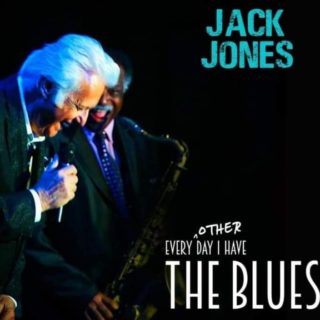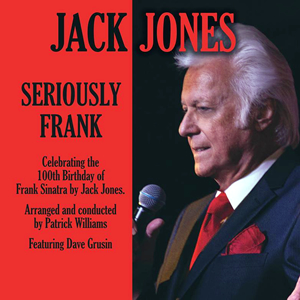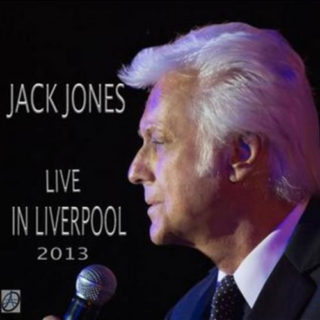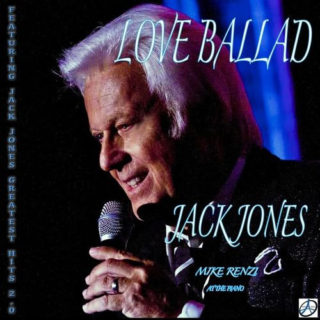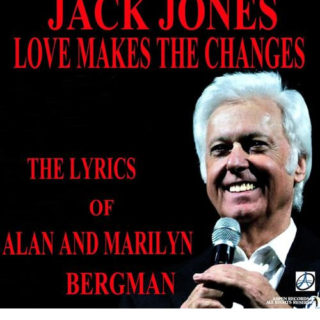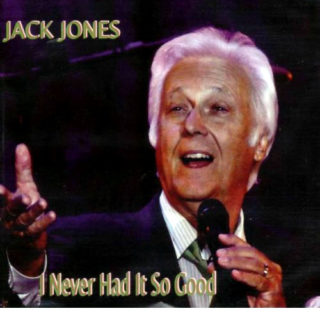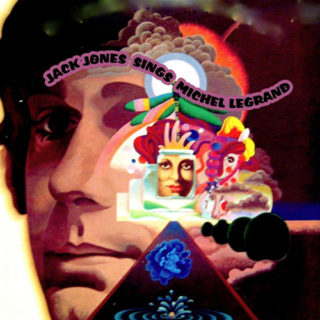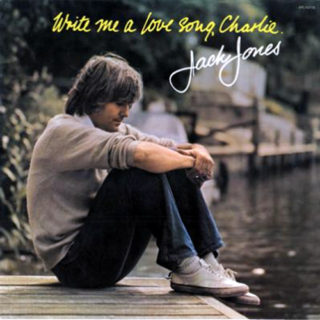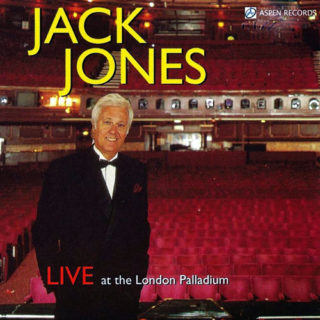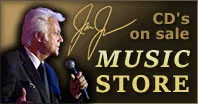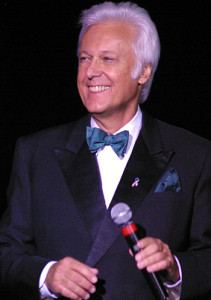 Jack Jones is truly a singer’s singer. Frank Sinatra, Tony Bennett and Mel Torme are among the pop icons who have lavishly sung his praises.
Jack Jones is truly a singer’s singer. Frank Sinatra, Tony Bennett and Mel Torme are among the pop icons who have lavishly sung his praises.
The Grammy-winning Jones has recorded more than 50 albums, the latest of which, the masterfully performed “Love Ballad,” includes reinterpretations of many of the artist’s greatest hits.
Born in Hollywood to celebrity parents – singer/actor Allan Jones and glamorous ‘30s movie star Irene Hervey, he carved out his own indelible identity as performer.
Jones’ unforgettable hits include “Wives and Lovers,” “The Impossible Dream,” “Lollipops and Roses,” “The Race Is On,” “What I Did For Love,” “Call Me Irresponsible” and “The Impossible Dream.”
In addition to many TV variety show appearances and specials, Jones acted in episodes of such series as “The Rat Patrol,” “McMillan & Wife” and “Police Woman,” as well as the movies “The Comeback” and “Juke Box Rhythm.”
He also recorded theme songs for popular films and TV shows, including “Love With A Proper Stranger” and “The Love Boat.”
Having popularized many songs from musical theatre, Jones earned raves for portraying Don Quixote in a national tour of “Man of La Mancha.”
Jones was gracious enough to chat with PCC, prior to his engagement at San Francisco’s The Rrazz Room at 222 Mason Street, January 17-22 [$40-$45; 800-380-3095; wwww.therrazzroom.com]
POP CULTURE CLASSICS:
There’s such a wonderfully intimate feel to the new album, ‘Love Ballad.’ Was that something you were trying to capture?
JACK JONES:
Yes, that was Mike Renzi [pianist] and my trio[bassist Chris Colangelo, drummer Kendall Kay]. We work together all the time. So I wanted to bring that to the recording, the fact that everybody knew their stuff. We didn’t go into the studio and say, ‘Let’s try this’ or ‘Let’s try that.’ We knew exactly what we were doing. We just had finished appearing at the Cowan Theatre in Palm Desert, then on to Phoenix.
We rented a studio in L.A. Put all the tracks down. It was rather frustrating, because I went up there and I was allergic to something in the carpets. I started to go nasal and thought, ‘Well, this is ridiculous.’ So I did all the vocals when I got back to my studio at home.
But it’s wonderful to be able to go in and capture something that is that well rehearsed.
PCC:
How did you go about selecting the material?
JONES:
Basically, that’s the material we were doing, with the exception of the title song, which came to me after the fact. That song was written by a friend of mine and recorded by him, Patrick Tuzzolino, 10 years ago. So when you hear that track, that was all done 10 years ago. He sent me the track and I recorded my voice on it. And the saxophone player Sam Most, I thought was an intriguing throwback to an old dance club somewhere. After I recorded it – I had only met Sam Most briefly years ago, in Vegas – and I sent it to him with a note, saying, ‘Hey, man, sorry to be late for the gig.’ [Laughs] Ten years.
And there’s the song that I wrote – ‘I Can’t Wait To Miss You’… so when are you leaving? It’s really a funny song. I’ve been doing it in my show, doing it straight, like a ballad. And people start to laugh, but they don’t want to laugh, because they don’t want to hurt my feelings. It’s a dark song, but it’s funny.
PCC:
It must be great to have total control over the project and have it turn out as you envisioned it.
JONES:
It really is. It’s dangerous. And it’s lonely. You don’t have anybody to feed back from. My wife did come in through the door and make some noises from time to time [Laughs]. But yes, it’s a wonderful feeling to be suspended somewhere and know, if you make a mistake, you can fix it. Nobody’s going to hear it until it’s done.
PCC:
You’re still discovering new shadings in songs like ‘Wives and Lovers,’ that you’ve been performing for many years?
JONES:
Yeah. I’ve discovered some more fun. I just did it for me, nobody even notices it, but that’s such a male chauvinist song. The National Organization for Woman really came down on me, when they discovered I’d been singing that. [Laughs] So I just wanted to do something for my own satisfaction. So, at the end, I put my own background vocals and after having said in the song, ‘Hey, little girl, comb your hair, fix your makeup,’ at the end, you’ll hear my background singing, ‘Hey, little boy, cap your teeth, get a hairpiece.’
I ran into Hal David, who wrote the song with Burt Bacharach. I had sent him the CD. I said, ‘So, did you get the CD? ‘Yes.’ ‘Did you hear the new version.’ He just went, [sternly] ‘Yes.’ [Laughs]
PCC:
It must be a terrific feeling to know that you’re a singer’s singer, to have so many of the greats praise you and mention you as being among their favorite singers.
JONES:
It’s wonderful, it really is. It’s very gratifying to have that kind of respect. I’ve been, at times, a little bit too hip for the room here in L.A. When I started having hits, it’s only because my producer at Kapp, he brought me ‘The Impossible Dream’ and he brought me ‘Wives and Lovers’ and ‘Lollipops and Roses.’ And every time I would deviate from the melody, he’d slap my hand.
But this album was an enjoyment, because I don’t think I went too far. And I actually did some of the old things like ‘If’ and ‘Call Me Irresponsible’ and adding some padding to it, some colors. It was really a wonderful opportunity to paint a portrait.
PCC:
Besides having the right producers, what has been the key to choosing the right songs for yourself? Is it the storytelling aspect?
JONES:
That’s what I look for. I look for the story and the romance. I was watching Buble the other day and he said, ‘People really love this kind of music and that’s what I’m doing it, because they love the romance.’ And he’s right. The romance is something that people are, more and more again, trying to get back to. But I’m not one of those who says, ‘The great songs are coming back.’ There are some great songs being written, as new songs, in a different style.
PCC:
But do you sense a resurgence of interest in classic pop?
JONES:
Well, I have an audience. And you hear performers say all the time, ‘I have a lot of young people in my audience.’ Well, I do. They’re there. Especially in places like the Philippines, there’s a whole different culture, where people actually have their parents live with them. They take care of their parents. Therefore, this whole society is used to having things handed down. And one of them is Jack Jones [Laughs]. The kids embrace the music. I was just there eight months ago, playing in a coliseum, in front of 8,000 people. And half of them were the offspring of the people I played for 50 years ago, at the same place. That time I played for 9,000. So in 50 years, I only lost a thousand.
PCC:
Your vocal magic is certainly still there. Have you pampered the voice over the years?
JONES:
Yeah, I’ve been careful, because I studied legit voice. And I’m careful not to stretch too far. Rock ‘n’ roll singers, I think Tom Jones is one of the greatest white blues singers that we’ve ever had, a wonderful singer. And he’s adventurous, because he really does a lot of screaming. Fortunately, I don’t have to do a lot of screaming. I’ve done some blues. There’s some up on YouTube that I’m proud of. But I haven’t made a whole career of screaming. So that’s a help.
PCC:
Do you find that, with the years comes more experience that can enrich the vocal interpretations?
JONES:
Oh, absolutely. That was what was fun about re-recording some of these songs. My whole insight is different now, my whole point of view, when I sing it. ‘Call Me Irresponsible,’ when I first recorded it, I was chosen to record it by Sammy Cahn himself, and Jimmy Van Heusen, and they had already recorded it with Frank Sinatra. But Frank had this wise, jaded characterization. Really, it sounded like a drunk singing, ‘Call Me Irresponsible… and I’m irresponsibly in love with you.’ I said, ‘Why are you asking me to sing this, when you already have Sinatra on record?’ They said, ‘We want a record on this that is innocent.’ And so that’s what they got.
I had to talk the record company into doing this, because they didn’t want to go head-to-head with Sinatra. As it turned out, we had the hit, because it was innocent. But now I’ve gone back and I’m singing ‘Call Me Irresponsible’ from a different point of view. It’s not quite so innocent, but it doesn’t sound like a drunk. So every lyric, I approached differently. And people are responding to that, when they see me in person.
PCC:
Is it the honesty of the delivery that enables you to connect so strongly with the audience?
JONES:
I guess so. I don’t want to toot my own horn here, but I guess there’s an involvement, so that, if you run out of voice, it doesn’t matter so much. Hopefully your ability to involve the listener evolves and improves.
PCC:
You mentioned Sinatra. I had read that he gave a concert at your high school, which had a big impact on you. Had you know him through your acquaintance with his daughter Nancy?
JONES:
No, I didn’t know him as Nancy’s dad. I knew Nancy from the patio at lunch time, all standing around, holding our books, talking, getting something to eat and a carton of milk. She was a couple of grades behind me. But what we never discussed was that I was a complete Sinatra fan, listening to everything. I listened to his album ‘Only The Lonely’ over and over and over, in my room, which would indicate that I was a very depressed kid [Chuckles].
I did appreciate the artistry. That album is still probably the greatest ballad album ever made.
So I was in heaven, when, suddenly, she surprised the whole school with her dad coming and singing, with Ray Anthony and band. The curtain opened and there they were. ‘What!?’
PCC:
Coming up with your own distinctive style, was that just a natural process or something that you consciously worked towards?
JONES:
It was a process. There was Steve Lawrence and myself and Vic Damone, a few others, that you could hear on the radio and say, ‘Which one was that? Is that Steve or Jack or… ?’ And you just have to get worn in. Over a period of time, you develop your own sound and your own way of doing things. But in those days, you’re so impressionable that you want to make it sound just like Frank.
PCC:
From observing your dad, did you get some lessons on how to sustain a career?
JONES:
Well, that’s a problem in growing up. You tend to minimize your own parents. And my dad, it was wonderful of him to send me down to Hollywood, in a bungalow, to a wonderful teacher, who taught me legit voice production. And that took me away from just the crooning. But my father hated Sinatra, not as a person, but hated the whole idea of it and so, when I made my first demo record for Capitol and played it for him, he didn’t like it. He called it ‘Namby-pamby.’ He just didn’t like it.
But I reached a point in my career, I was in New York, I was playing the Waldorf Astoria, they came to the show. And I finished and he said, ‘Well, son, now I can tell you, you’ve been singing for a long time. I’ve never liked you before, but you were great tonight.’ [Laughs]
PCC:
With both parents having their own stardom, was it inevitable that you would go into show business?
JONES:
I just wanted it. As a matter of fact, it was just in my way, that my father was a famous singer. I had a chip on my shoulder, every time they’d refer to me as Allan Jones’ son. Having gone through that, and becoming friends with Frank Jr., I can just imagine how he feels all the time. He’s always in the shadow of his dad. But he makes it work. He loves music. And he’s a musician. He plays the piano and he likes to lead the band. So he’s made it work. And my hat is off to him.
So I had this chip on my shoulder and I finally got over it. And I worked in my father’s act, when I started. I did a duet of ‘The Donkey Serenade’ with him, which is his big hit. And I was born the night he recorded it, in 1938. So we’d do that. And then I went out on my own. And years later, before my dad’s death, he wound up singing in my show. And it was a great opportunity to have this wonderful musical and show business camaraderie with your dad.
Bob Goulet told me that his dad sang, but that he’d never had that with him, they’d never worked together. So I’m grateful I did have the opportunity.
PCC:
I had read that, when you were first making records, you were working as a gas station attendant. Is that true?
JONES:
Well, now, this is what I’ve been repeating over and over again to my almost 21-year-old daughter. ‘Don’t you realize what I was doing? I was working.’ [Laughs] Yeah, I did a lot of stuff. I’d get a gig and go out and sing and have to come back and not do anything. So I fell back on the jobs that I had in high school, part-time. And I knew the gas station owner. So there I was. I’d made a record. And I hadn’t heard it on the radio. I was washing this guy’s windshield. It was June. It was very warm. It was nice. His top was down. I was wiping his windshield. And my record came on. And I thought it was ludicrous. I looked at him, but I just couldn’t say anything [Laughs] I wasn’t going to say, ‘Hey, that’s my record on there!’ ‘Sure it is, just keep wiping.’
PCC:
Must have been a surreal moment.
JONES:
Very surreal.
PCC:
Is your daughter interested in a musical career?
JONES:
No, she wants to be a therapist.
PCC:
Well, every family needs one of those.
JONES:
[Laughs] Yes, it’s good.
PCC:
And the acting, was that more of a lark for you? Or something that you really enjoyed over the years, as well?
JONES:
Well, in school, I was in the senior play, before I was a senior. So I did it twice. I had to get rid of Doug McClure, who was a senior. So, as soon as we got him out of there, I could take over [Laughs]. He became a good friend of mine. But that’s what I wanted to do. I wanted to be a double-threat. But I got so involved, I was so successful, knock on wood, so early, with the singing, that it took off and I didn’t have a chance to think much about the acting.
Besides working at the gas station, I was a liquor delivery boy. I would go out on interviews in the daytime. And I had this nighttime delivery job. It was perfect. I kept going in, trying out for different roles, and not getting them. I tried to re-think it. One day I decided I would go in and pretend that I didn’t want it, didn’t need it. So I did. And as a result, I didn’t get it . [Laughs] And so, that night, they gave me all these packages to deliver. And I used to deliver to these old ladies who were really alcoholics. The door would open only so far. They’d put the money out and grab the bag. I got to one house and this guy said, ‘Come to the back door and bring it in here. Thanks very much.’ And it was that guy from the audition, that I’d told I didn’t need the job. [Laughs]
PCC:
But you did end up getting some good roles.
JONES:
Well, I got a role in ‘Juke Box Rhythm,’ one of those cheap, 10-day wonders. But I had the lead. It was a great exercise for me. I was okay in it. And there were some old stars in it and I had a chance to work with them. Then I did an English horror flick and a lot of episodic television, which was okay. It was fun.
I’m talking about doing a Broadway show. I’m playing a very pivotal older guy. It’s a wonderful piece they’ve been asking me to do. That’s one thing I’d like to do before it’s all over.
PCC:
You’ve done musical theatre, but not on Broadway?
JONES:
I toured with ‘Man of La Mancha’ for a whole season.
PCC:
We’re looking forward to your Rrazz Room engagement. You have quite a history in San Francisco.
JONES:
Yes, I started out at Fack’s II on Bush Street and when I had a hit record, I moved on to the Fairmont. And I had a wonderful time there. I used to have relatives in the area and now I do again. My wife’s two daughters live there and grandkids. So we’ll be up there having Christmas.
PCC:
Do you still get a big kick out of performing?
JONES:
Oh, yes, absolutely. More so. When I started, I was younger than everybody else and playing for my peers and the older people. Now those older people are dead [Chuckles]. So I’m playing for other people, fortunately. But as a more mature person, who sees life differently, it’s more fun to communicate. When I started, I was shy. It was hard for me to look people in the eye. And now I wouldn’t dream of not looking everyone in the eye and saying, ‘Hi, here we are. Let’s really enjoy the music together.’ The only thing I hate is getting on an airplane, as most people do now. It’s just no fun anymore, the travel.
PCC:
You were really one of the only pop singers to sustain his popularity through the British Invasion and the singer-songwriter era. Was that partly because you had an open mind and ear musically?
JONES:
Oh, yeah. I did a record called ‘Jack Jones Live at the Sands,’ on which I do ‘Spinning Wheel,’ the last thing you think Jack Jones would be singing. But it’s a good record, for what it is. It’s not a total copy of the original, which I really liked.
There’s another group, Earth, Wind & Fire, that I think was the greatest group that ever was. That’s a tremendous blend of rock and jazz. And that’s where my head is. I love listening to jazz, but I’m not a traditional jazz person anymore. A busy sax solo is – the one on my new album is not busy, it’s pretty simple, which is what I like about it – but when you get somebody who’s a far-out sax player, hitting all the notes that all the other musicians appreciate, that’s great, but nobody really wants to do that all the time. I hope I’m not offending somebody.
PCC:
But you do find merit in today’s pop music?
JONES:
Well, yeah, I really do. There’s a song, ‘Can’t Go Home.’ I have it over a video of my family and I put it up on YouTube and I used her record in the background. And it’s a wonderful creation. It’s a wonderful piece of art. And it’s about not being able to go back home again, going back to your old house and visiting and it’s not the same. And that’s what she wrote. My daughter got hold of it, because she was moving out of her house that she lived in all her life and was going into a depression about it. So she put it up on Facebook. And I heard it. And I went, ‘What a great song!’ So there’s a lot of great singers and great styles out there. The only thing I don’t like is just really hard rock. That’s not for me.
PCC:
What’s been the biggest challenge for you?
JONES:
What you have to combat – and there’ s no getting around it, it’s in every industry- is ageism. And the assumption that you’re not going to be able to deliver. When I started, I was known, by the press, as ‘young Jack Jones.’ And every time they talked about me, ‘Young Jack Jones opened yesterday… ‘ Suddenly I realized at some point, that they had begun writing just ‘Jack Jones just opened the other day… ‘ And all of a sudden, the word ‘still’ came in – ‘He’s still got it.’ And from then on, you’re constantly proving yourself, that you can still do it. That’s okay. [Laughs] As long as you can still do it.
PCC:
So as far as the reward, is it the outside validation or just the knowing within yourself that you’re still delivering?
JONES:
We just got back from a British tour and everybody, my trio and these two guys that I have over there, to play keyboards, we just made such wonderful music. And the satisfaction is that you’re not repeating the exact same show every night, with the exact same changes. My guys just like to go on an adventure. And they never make a mistake, never go off somewhere they shouldn’t go. I trust them. But every night, it’s somewhat of a jazz experience.
I remember, when I did ‘Man of La Mancha,’ I had a wonderful actress playing Aldonza, Marilyn Caskey. And we would do the same scene every night, especially the one leading up to ‘Impossible Dream.’ And a lot of actors, every night is the exactly same reading. And it works. And the facial expressions are the same. And the audience gets it. They like it. Fine. But we got together and we would go on this adventure. And sometimes it would improve things. Suddenly you’d find something. So I called her, ‘my jazz actress.’ And that’s the fun of being on stage, going on that trip.
PCC:
With such an array of accomplishments over the years, any unfulfilled goals? Would Broadway be at the top of that list?
JONES:
I don’t know that I, chronologically, have a lot of time to be too choosy. The Broadway thing seems more logical and meaningful. ‘Man of La Mancha,’ there was a tremendous satisfaction in expressing all of that meaning of true values in life, that need to be adhered to. So it was fun doing that, rather than singing some filler song. That was the epitome, to me, of being an actor, a performer, a singer. So that’s something that I want to do.
So anyway, I just keep forging ahead, singing… and trying to get through security.
For the latest on this artist, visit www.jackjones.org.




